Book reviews are important. Whether you’re Stephen King, Jeffery Archer, Stephanie Meyer or EL James, book reviews form a vital component of an author’s career. If you’re… I dunno… Alice Smith from up the road plugging copies of your debut vampire romance, featuring talking unicorns and aliens, reviews are important to you too. They’re what convince readers to take a chance on you. They’re how the word is spread about the tale you have to tell. And, perhaps, more importantly, they are a means to boost flagging confidence.
People are interested in reading your work. They care. They enjoyed it enough to spend time telling others about the experience.
Those are good reviews.
But bad reviews? These can turn away potential readers. Frustrate existing ones. They can take your reputation and grind it into the earth. Bad reviews can destroy your confidence. Steal your mojo. Even make you lay down your pen.
Anne Rice has recently been on a massive campaign to encounter the implementation of named reviews on Amazon. Not because she wants to get rid of bad reviews, but because she feels the anonymous nature of the current review system gives rise to needlessly venomous reviews and even fake ones from disgruntled readers or unscrupulous, competing authors.
While my thoughts on that campaign (see Anne’s Facebook if you want to know more) are for another day, it does bring me neatly onto my main point.
 I’m an author. I write books.
I’m an author. I write books.
I’m a reader. I read books. I also review them.
This year one of my self imposed challenges is to read 12 Indie books over the course of 12 months. Raven is also going to read 12 books. This challenge encourages me to review the books in full here, and in brief wherever I bought them.
Now… some of these books have been awful. I can’t lie. No editing, flat characters, wishy-washy plot and abysmal formatting. Some books have been so amazing that I stopped my own work (more on that later in the month!) for the two days it took to yank my head from the hypothetical sand. They scared me with their incredible level of professionalism and talent to the point that I doubted my own ability. And still do.
All these books will get reviewed. They’ll be scored based on the system I came up with at the start of the year and I’ll talk about why each book got what.
But should I post them? Is it fair? Do I have any right to potentially hamper another person’s career because my take on their work isn’t favourable? Should I only post the good ones? Should I not add links or refuse to name names just in case I upset someone?
I don’t have any trouble reviewing larger names and mainstream authors. Perhaps because they’re big enough that I feel they can handle it. But small press authors? Indie authors? I’m sensitive to them and the potential damage I could do because I’m in the same boat. That, if I’m honest, is what this post boils down to.
But will my humble option really make that much difference?
To a potential buyer of a JK Rowling book? Probably not.
To a buyer searching through the freebie section of Smashwords? Maybe.
Reviews count.
Aaah well… for now I’ll continue to write reviews and post them here. Whether they’re good or bad.
However, I will also be more sensitive about the language I use, wary of the fact that somewhere along the line, these authors may read my words, after all, Martyn wasn’t the only one to contact me following a review here.
I know not all books will be to my taste, just as my writing won’t suit everybody. but I can be respectful about the feedback I leave, which is key. After all… I’d want them to do the same for me. 😛



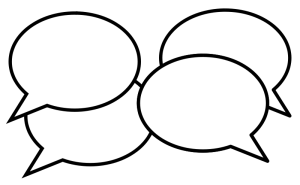

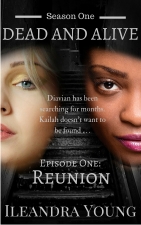



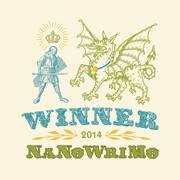
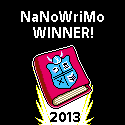
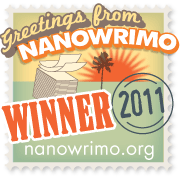



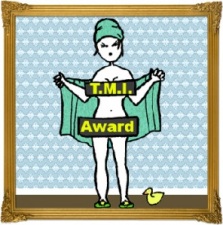







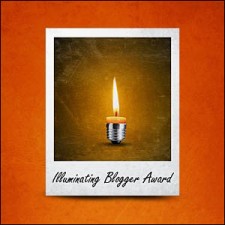
Good article. I have a goodreads account under a penname that I write reviews on. Mainly because I’m a really picky reader… some things are better left in the dark, hehe.
LikeLike
Thanks Jodie. 🙂
I never thought of a separate name for reviewing. I guess, once this challenge is over Raven and I can step back and let Da Shared Brain do it instead. That will be an interesting experiment. And I wonder if the reaction from authors reviewed would be any different.
Hmm….
LikeLike
Reblogged this on Confessions of a published author and commented:
Great post
LikeLike
Thanks Arran. 🙂 I’m heading over there now.
LikeLike
Agree you have to be careful not to crush Indie authors with too much criticism, and I have stayed clear of reviewing indie books for that reason. I think writers are different from ordinary readers, because we have struggled with the same craft, and so a review from a writer can offer great depth, e.g. highlighting those things that work well and those things that fall flat. On my review blog, http://ruthlessreadings.wordpress.com – I write the reviews from the POV of an aspiring writer, looking at what I can learn from the book. Anyway, look forward to reading your reviews.
LikeLike
Maybe that’s the slant I need to take on it. I make no secrets of the fact that I’m doing the same thing as others while reviewing; that’s all over the blog. However, specific to those reviews, I could probably mention it.
You’re right though; I have great trouble just reviewing a book ‘as a reader’ rather than a ‘reader/writer/publisher’. I’ve talked about it before, but it’s never been clearer to me than it has in the last few months.
LikeLike
Pingback: VICTORY!!! (& Mah Goals – wc 05/05) | Writing: A Conversation Without Interruptions
I think that something worth pointing out is that, whether or not the review paints a book in a good light, it can elevate a previously unknown indie author out of obscurity.
Smashwords is a good thing for indie authors, but not for readers who are looking for something very specific in terms of genre and content. I’ve looked, searched, browsed until my eyes nearly popped out, and come away unsatisfied. There’s just too many to wade through.
Authors who review other authors help readers to shortlist books they want to check out, regardless of the ratings given. It puts them on the radar. A 2-star rating may have a negative impact on sales, but no reviews or ratings at all make for an arguably worse effect.
Additionally, one of the huge indie author advantages is the ability to revisit and update stories following feedback, often at little cost to themselves save for time. Having a handle on what fickle readers do and don’t like is vital to improving sales, not just of future stories but new editions of old stories.
In a nutshell, the more indie authors you review, the more chance that readers are going to read your blog and recognise the value of your views, rather than stumbling through Fantasy >> Epic on Smashwords. 🙂
LikeLike
That’s another way to think about it. 🙂
One I hadn’t considered.
Yes, one can get caught up in wanting ‘good reviews’ but having no reviews at all can be worse. I certainly wouldn’t mind a couple of 2 star reviews. I’ve clearly moved someone enough that they felt the need to share, even if it wasn’t necessarily positive. That’s still a good thing. And reading reviews like that can coax others to look and decide for themselves. That’s certainly what I did with 50 Shades. The reviews were so mixed I HAD to see what was going on… and I stand by my 0.5 star review. :p
Smashwords is totally saturated right now and I doubt it’s going to get any better. But maybe you’re right; maybe seeking out books that have reviews can help sort of some of the chaff after all. Even if the reviews are 1/2/3 star.
LikeLike
Can I just say that the comments appearing here are wonderful; well thought out and insightful. Thank you for taking the time to talk about this with me.
I’m genuinely curious about what you all think. 🙂
LikeLike
I’m also reviewing books, and although I haven’t published yet, I am writing. I do post negative reviews, and a couple of them are indie books. However, I was positive in certain ways about both books. I don’t want to crush their spirits, but I also want to point out what I felt was wrong with the book, and how I felt they were good. I also pointed out that they may appeal to a different kind of reader than me, so I didn’t flat out say they were terrible. I try to do that in all of my reviews.
LikeLike
A considerate and sensible way to go.
My problem is, I get so passionate about the books I read (whether I like them or not) that sometimes the language I use to talk about them isn’t the kindest. But never, in a million years, would I want to turn someone away from our mutual love by being deliberately crushing or vicious.
So your method is a very good one; one I’ll be sure to keep in mind and try to adapt into what I do. After all, I know what kind of reader I am; which is quite different from very many other people and bang on for others.
LikeLike
Of course, I haven’t reviewed a truly awful book yet, though there was one that was science fiction with horrible science and inconsistent history. All the dialogue sounded like it was lifted from a cartoon, and the narrative was filled with cliche and slang. I was kind and said that people who like something with mindless, fun action would like it, but I found the scientific mistakes difficult to read.
LikeLike
I’m learning so much from these comments. Those are the sorts of things I need to be saying in my reviews. Just because I don’t like a certain thing doesn’t mean others might not. Sometimes I look back at past reviews and wonder if yes, maybe I am a snob after all. o.O
But approaching it the way you have and do would solve that issue for me.
Thanks very much, Jay Dee. I feel like I’m learning lots from your comments. 🙂
LikeLike
No problem. I didn’t realise I was helping out 🙂
LikeLike
Great post, Ileandra. The whole issue of reviewing other authors is a tricky one, but as many of the previous commentators have pointed out, I agree that the way around the difficulties is to be honest, but constructive. I read reviews when choosing books (both traditionally published and indie) and what I am looking for is constructive criticism – yes, maybe the book has flaws, but they might be flaws I can live with and am happy to forgive if the story hooks me. I often find the 4-2 star reviews the most helpful for that reason. I’ll pretty much ignore reviews where it is clear the sole aim of the review is to ‘trash’ novels or authors or to be clever at their expense – I don’t think they’re helpful for my purposes as a reader.
LikeLike
Oh yes. I can’t understand why some people would spend so much time trashing someone else’s brain child. It makes no sense and is so savage and mean. I think that’s part of what Anne Rice was talking about and I find that when looking at books that already have reviews a good mix across the whole range of the traditional 1-5 stars is an indication of more honest reviews. There isn’t a single book out there that everyone loves, so unless someone has done their marketing excellently and has managed to convince only the people who love the book to leave a review, you’d expect to see a bit of everything.
LikeLike
This is turning into a very interesting discussion 🙂
When I look at book reviews on Amazon for an unknown book, I tend NOT to buy a book with only 5 star reviews (unless the author is really well known), because if I see only 5 star reviews, I become immediately suspicious. And, I tend to read the 1 and 2 star reviews first. They don’t necessarily put me off. (But I may be a little odd, of course.)
LikeLike
Now that is interesting. I don’t trust pure 5* reviews, but I wouldn’t avoid them or not buy them as a result. I’d just come to it with a bit more scepticism. Though I must admit, when I’m buying any other product (from Amazon or otherwise) I always look at the 1 and 2 star reviews. I want to know what sort of problems people have found and what they did about it. It doesn’t put me off, as you say, but I’ve never applied that to books before.
Hmm. Maybe I should.
LikeLike
I struggled with this dilemma too and I think I found a way which works for me.
My blog used to be called, “Don’t Read” and, never having found a star or scale system very informative, graded books on a pass-fail basis. I also begin by critiquing a book’s opening chapter, which must shine in order to convince readers to keep going.
After hearing some discussion against authors reviewing other works and reconciling my own opinions (why CAN’T authors review others’ books? Why do dentists recommend toothpastes? Why do veterinarians recommend cat food?) I found a system I think works for me.
I re-branded my blog as “The First-Impressionist” and, while I don’t pretend to like every book I blog about, I offer a look at things I like about it, things I feel could have been better, and a few of my interpretations about the work. Then, when I finish the book, I post again about its flaws and merits as a whole.
I feel this works well because “there’s no accounting for tastes” as they say; My own preferences in reading don’t matter to a reader; I make my reviews about strength of writing and I briefly describe the content.
Incidentally, I have a whole category devoted to Indie books if anyone needs reading recommendations–some are quite good and some are quite fun!
Wow, long comment. I hope it was useful.
Thanks for the post!
LikeLike
Hehee don’t dentists and vets get a commission for the stuff they recommend (that’s what my mum insists, anyway).
I think looking at the opening chapter is good way of doing reviews. Isn’t that what agents and publishers harp on about? And, frankly put, if you’re a civilian reader (heh, I like that term) then you’re unlikely to read past that point if you don’t like the book. People have other things to do.
I’ll be sure to take a look at your reviews, too. I’m always interested to know what people think about Indie books and recommendations are welcome.
LikeLike
Thanks, Ileandra! If I knew your genre, I’d recommend you something off the top of my head.
LikeLike
Fantasy, that’s me. High/traditional/urban/experimental fantasy…. or erotica for Raven. :p
LikeLike
The best one I read recently was The Scriptlings by Sorin Suciu. It’s an urban fantasy, very much in the vein of Pratchett and Douglas Adams.
For high fantasy indies I gotta say I liked The Swords and Salt Collection–very well crafted.
And if you want sex, go for Undermeat-a very fun read-just note that it’s kind of an unpolished work.
LikeLike
Excellent! Right, I shall look those up.
Thanks very much.
LikeLike
Pingback: Wot Makes Gud Riting? ;-) | Writing: A Conversation Without Interruptions